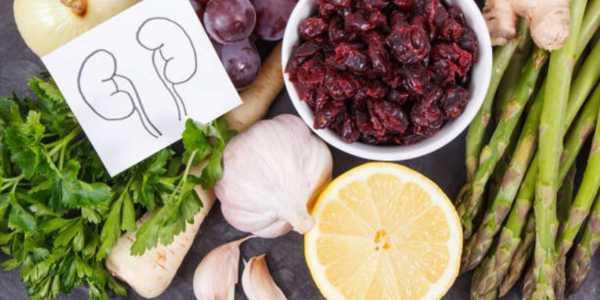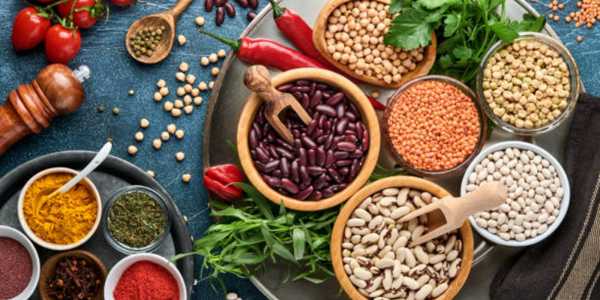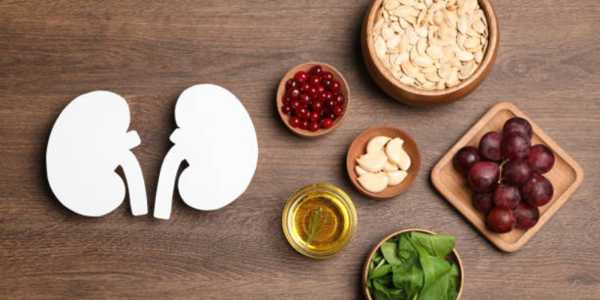How to Support Kidney Health With Nutrition
One of the most ignored but important health topics is kidney health. Replacing every bodily organ with kidneys wouldn’t work, but these two are rather essential as they help in eliminating waste, managing fluid levels, and controlling vital minerals in our blood.
One of the most ignored but important health topics is kidney health. Replacing every bodily organ with kidneys wouldn’t work, but these two are rather essential as they help in eliminating waste, managing fluid levels, and controlling vital minerals in our blood. A fact that most of us do not know is that nutrition gaps affect kidney function. Today we will look out for everything around nutrition and kidney health, its fundamental parts, and some tips to get the most out of it – approachable and informal.
Kidney Health
Your little organs, the kidneys, work so effectively that by filtering out waste and extra fluids from 120 to 150 quarts of blood every single day is easy for them. They in fact, possess the ability to control blood pressure, ensure health bone formation, and monitor electrolyte levels. Similar to every other bodily organ, the kidneys also suffer from diabetes and hypertension and dietary habits over time. These factors lead to organ distress. As one of the leading medical facilities, The National Kidney Foundation state that food intake directly affects the functioning of the kidney. By taking the right steps and the right food, the dense nutrition foods that help can be chosen while other harmful foods are avoided.

The Role of Nutrition in Maintaining Healthy Kidneys
Although it’s surprising, it turns out that nutrition and kidney health are intricately linked. What you eat affects the function of the kidney in the following ways:
Reduced Inflammation: Certain foods help to lower inflammation, which is vital for patients suffering from chronic kidney disease. Some fruits, vegetables, and omega-3-rich foods are associated with less inflammation.
Blood Pressure Control: Increased sodium consumption is related to higher blood pressure,which is a leading cause of kidney damage. A diet low in sodium, but high in fresh fruits and vegetables and lean proteins, is beneficial for controlling blood pressure as well as kidney health.
Blood Sugar Regulation: Balanced meals can help diabetic individuals regulate their blood sugar levels which subsequently protects the kidneys from damage. A low-glycemic and high-fiber diet will help normalize insulin levels and, more importantly, help maintain kidneys' health over time.
Preventing the Accumulating Toxins: Eating too many highly processed foods laced with synthetic additives and lots of protein can wreak havoc on the kidneys over time. Switching to whole, lightly processed foods will greatly decrease the burden on the kidneys and aid in their natural filtering process.
Foods That Aid in Kidney Repair
Living a kidney capable life without excellent culinary tasting experiences, is possible. It is all about choosing the right foods that will help your kidneys without compromising on taste. Let’s examine a few vital foods and vitamins that offer the required aid.
Fruits
Fruits and Vegetables are the corner stones of nutrition that is friendly to the kidneys. They contain a multitude of antioxidants, vitamins, and minerals that can reverse oxidative damage as well as inflammation. For example, apples, berries, and leafy greens. You can also refer to the National Institute of Diabetes and Digestive and Kidney Diseases (NIDDK) which recommends a wide selection of colorful fruits and vegetables to ensure you get various protective nutrients.
Proteins and Their Importance In Your Diet
Protein is crucial in repair work as well as in maintenance however, too much of it can cause the kidneys to suffer. You should've started thinking of chicken, fish and even plant sources like beans and legumes. These lean proteins are much easier on your system. The trick is balance: considering the loads of protein without exceeding the limits for the kidneys.
Fat That Is Good For Your Heart
Use of heart healthy monounsaturated and polysaturated fat is preffered. Heart protective fats found in nuts, seeds and olive oil unsaturated fats directly protect the kidney through reduction of cardiovascular disease.

Staying Hydrated
Among the most effective elements for kidney health is water. Good hydration allows effective waste removal, lowers chances of kidney stone development. Make a point of drinking water throughout the day, especially if the climate or level of activity calls for it.
Effective Suggestions For A Good Kidney Diet
Changing just a few of your daily eating habits can improve your kidney health in the long run. Here are several important ones to follow.
Mind your portions: Try not to overindulge as it triggers waste build up that needs to be filtered by the kidneys. For best results, try and keep your portions well balanced.
Read labels: Pay attention to the sodium value of packaged foods. Always choose low sodium where available, and try using herbs and spices for flavoring as well.
Plan your meals: Always keep a weekly meal plan. This helps to reduce the amount of processed, nutrient deficient, and high sodium foods you consume out of convenience.
Experiment with different strategies of Cooking: Grilling, steaming, and baking are good ways of cooking since they do not require added fat or salt nor lose any nutrients.
Stay Physically Active: Although it is not a specific nutritional tip, exercise routinely helps in healthy dieting by enhancing perfect blood flow and alleviating the weight on the kidneys.
Regular Check-Up: Regular consultation with your doctor will help you keep an eye on the condition of your kidneys and proactively monitor them, especially when you already have some problems like diabetes or high blood pressure.
Looking for assistance to improve the condition of your kidneys?
Managing the health of your kidneys does not have to be complicated with all sorts of things to consider. From mild incremental steps to changing your diet, like including antioxidant-rich foods for your heart, proteins that are easy to break down, and fats for your lean body can go a long way towards improving your overall well-being. Always keep in mind that every single meal offers the opportunity to focus more on the well-being of your kidneys, like having a refreshing glass of water, crunchy salad, and some slightly grilled fish.
Doing these changes to your nutrition every day not only helps to maintain your kidneys but aids and improves the other aspects of your health.

Protecting Your Kidney Smartly
Ultimately, taking care of your kidneys is about making smart choices, paying attention to your body, and getting professional help when you need it. No matter if you are at the beginning of your journey towards a kidney-friendly diet or trying to improve your current eating habits, the essence is consistency and mindfulness. It is a process in which you learn continuously. Every meal is another step that brings you closer to a healthier life.
So enjoy the process, try out new dishes, and appreciate every small achievement. Remember, your kidneys work tirelessly to keep you healthy, so give them the nourishment they deserve.